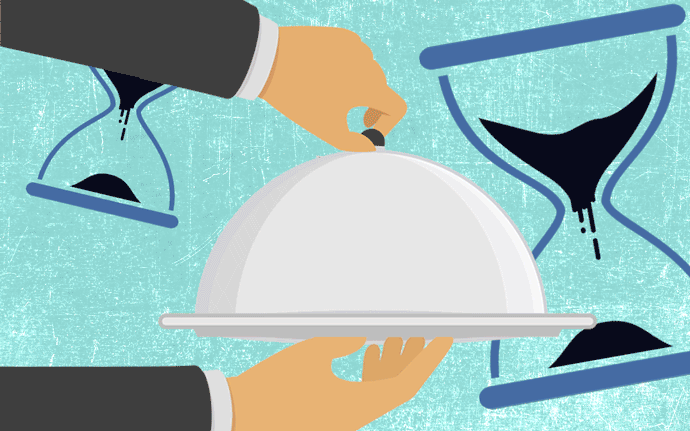In an effort to survive the financial fallout of the coronavirus pandemic, thousands of New York City restaurateurs entered into a perilous agreement with their landlords: deferring rent in the hopes that they’d be able to pay when their fortunes improved.
Thirty-seven percent of restaurants have deferred their rent due to the coronavirus pandemic, according to a recent report by the New York City Hospitality Alliance. But that pales in comparison to the number of restaurateurs who could not pay part or all of their rent: 92 percent in December, a figure that has risen steadily since the first Covid-19 lockdown was imposed last spring.
On its face, deferring rent makes sense. The business can push off paying rent to a later date, and the landlord — who needs the rent payment to pay their mortgage — can recoup earnings once the tenant is back on its feet.
But the calculus is different for businesses with tight margins that often struggle to make rent in the first place, such as restaurants. A year into the pandemic, some owe a whopping year’s worth of rent — and it’s unclear if they’ll be able to pay their landlords back.
“The retailer will never have the revenue from last Saturday’s dinner he didn’t sell,” said Paul Fetscher, president of Great American Brokerage, which specializes in restaurants and retail. “That meal has not been deferred. It’s gone.”
Read more



For one Upper East Side restaurant owner, a normal year meant paying over 10 percent of their monthly earnings in rent, while raking in profits of just 5 percent. The rest of its revenue goes to covering the other day-to- day expenses of running the business.
When the pandemic hit, the restaurateur’s landlord offered to defer the $48,000 a month in rent, to be owed over the course of two years. To the restaurateur (who spoke to The Real Deal on the condition of anonymity, fearing legal repercussions from their landlord), the deal didn’t make sense. The massive amounts of rent would have continued to accumulate, with the restaurateur not earning enough per month to pay it back.
All negotiations differ, based upon the respective financial positions of the retailer and landlord, along with the existing relationship. They can range from a percentage rent structure to complete abatement of rent owed.
“You use all levers,” said James Famularo, president of Meridian Retail Leasing.
But for most, deferring rent means tacking the missed payments onto upcoming months of rent. Some rent deferrals go as far back as March 16, 2020, when Gov. Andrew Cuomo first shut down indoor dining.
Many experts believe this is merely postponing an eventual closure.
“Restaurants are not going to be able to pick up a big nut like that,” said Dena Cohen, a partner at Herrick, Feinstein, who specializes in commercial leasing.
Unless there are additional negotiations or retailers receive a bailout, “[restaurants are] kicking the can down the road, if they’re deferring rent,” Cohen added.
Even before Covid-19 hit, New York City was a tough place to make it as a restaurateur. Prior to the pandemic, 17 percent of independently owned full-service restaurant startups failed in their first year, with the median lifespan of a restaurant being just under five years, according to a 2014 analysis of 81,000 restaurants across the U.S. That figure is likely even higher in New York. “There’s a romanticized version of what a life for a restauranteur was prior to Covid,” said Andrew Moger, CEO of BCD Development, a restaurant-focused real estate brokerage and advisory firm.
Moger recommends that tenants take a hard stance with their landlords moving forward by negotiating better lease terms.
“Having a successful and thriving restaurant in New York City means doing better than we were doing pre-Covid in terms of rent structure,” Moger said.
Legislators are also taking steps to address the problems faced by restaurateurs and their landlords. State Assemblymember Harvey Epstein and State Sen. Brad Hoylman introduced twin bills in their respective legislative bodies that would, in effect, cancel rent for some restaurateurs, as well as provide relief for their landlords. The legislation would apply retroactively to deferred rent. Its sponsors hope to get it passed as part of the 2022 budget, which must be approved by April 1.
But some business owners may not last that long. The Upper East Side restaurateur, facing the prospect of owing their landlord thousands of dollars they would never be able to repay, chose to close their eatery last fall instead.
“It’s more of an eventual death sentence,” said the restaurateur.
